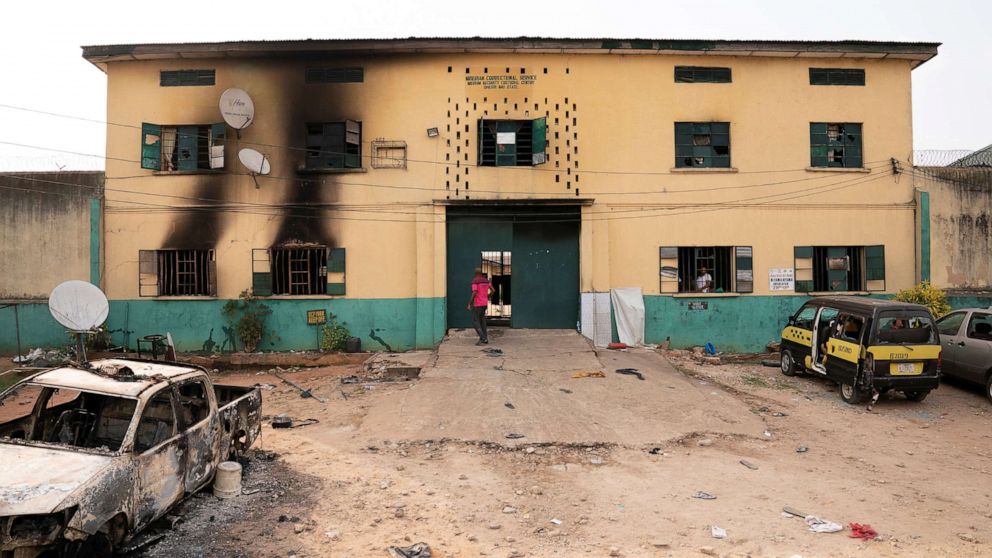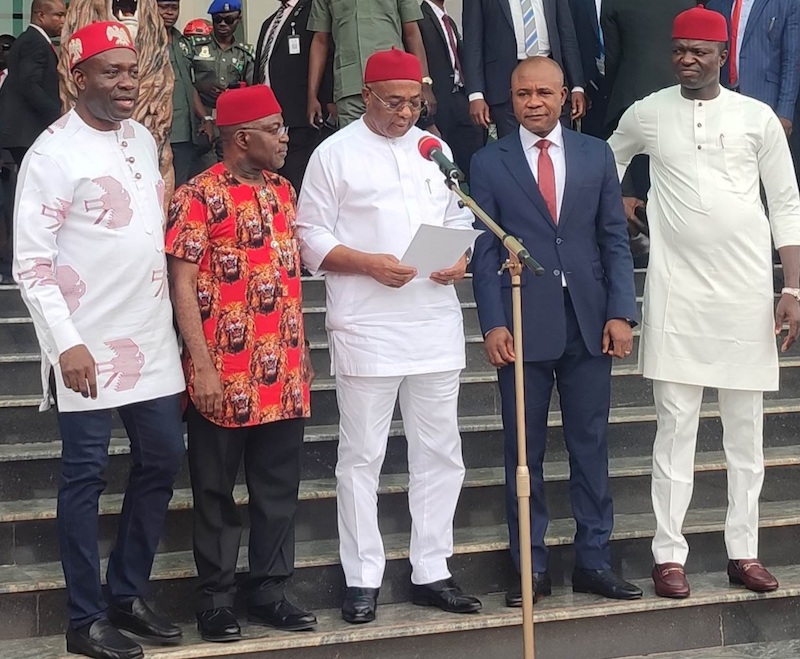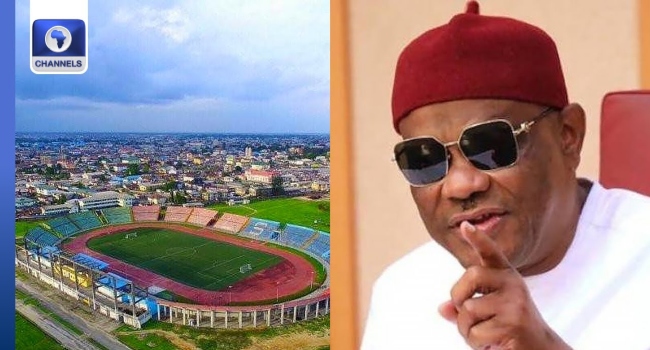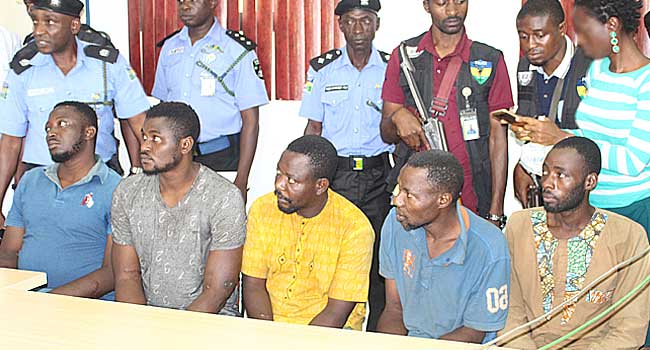
Please note that this explainer was first published on 27 May, 2024.
By Pascal Ibe
The order from a Federal High court to halt the reinstatement of Sanusi Muhammadu Sanusi as Emir of Kano, has continued to generate reactions from the public.
On 23 May, 2024, Justice Liman of the Federal High Court in Kano issued an ex-parte order preventing Kano governor from reinstating Sanusi as Emir of Kano.
Despite this order, Sanusi Muhammadu Sanusi ll on Friday received appointment letter as the 16th Emir of Kano from Governor Abba Yusuf at a grand event that took place at the Government House in Kano.
Kano governor, Abba Yusuf vowed to petition the judge for allegedly delivering a ruling while in the US.
In a feature by DailyTrust’s John Chuks Azu, disclosed how the same justice Liman had on July 8, 2023, restrained the Kano Public Complaint and Anti-Corruption Commission and other security agencies from harassing, arresting, inviting or detaining Ganduje. The order followed the move by the state government to investigate the governor following a 2018 video which allegedly captured Ganduje stuffing bundles of dollar notes from a contractor into his B Babanriga.
This piece explains why court order halting the reinstatement of Sanusi as Kano Emir, cannot stand.
According to city lawyers magazine, an article by Sylvester Udemezue queried whether if the lawsuit not an abuse of the process of Court, considering that the subject matter is a chieftaincy dispute over which the Federal High Court does not, under any circumstances, have jurisdiction.
The article stated that the suit is most likely an abuse of the process of Court by the Plaintiff. The Federal High Court does not seem to have jurisdiction in the matter; there is hardly any way one would frame the relief to succeed in bringing the suit within the jurisdictional competence of the Federal High Court of Nigeria. It’s a chieftaincy dispute, pure and simple, over which the Federal High Court is incompetent to adjudicate.
On whether it does not amount to professional misconduct for the Plaintiff’s lawyers to have filed this case in the Federal High Court, considering the subject matter and the cause of action as reported, the writer submitted that the lawyers who filed the case may be considered to have committed an act of professional misconduct in view of the provisions of Rule 15 of the Rules of Professional Conduct (RPC), 2023. What’s the business of the Federal High Court in a chieftaincy dispute in Kano State? The lawyers knew/know or ought to know that under the Constitution the jurisdiction of the Federal High Court is both EXCLUSIVE (meaning that it doesn’t share its jurisdiction with any other Court) and LIMITED, meaning that the Federal High Court is competent to hear ONLY disputes arising from or connected to the matters/items expressly listed in SECTION 251(1) OF THE CONSTITUTION OF THE FEDERAL REPUBLIC OF NIGERIA, 1999. Chieftaincy disputes are clearly outside of it, every lawyer ought reasonably to know. Filing the suit at the Federal High Court is a form of disloyalty to the extant law, which is forbidden by *RULE 15(3)(a),* which provides that “a lawyer must not give service to the client which the lawyer knows or ought reasonably to know is capable of causing disloyalty to the law or bringing disrespect to the holder of any public office”. Also, by virtue of *RULE 15(1)(a)&(b),* a lawyer ought to keep strictly within the law notwithstanding any contrary instructions by his client and must use his best endeavours to prevent his client from causing a breach of the law”. Finally, *RULE 15(3)(b)&(c), RPC* provides that “a lawyer shall not file a suit or knowingly advance a Claim that is unwarranted under existing law”. In my opinion, the lawyers who filed the case at the FHC could be caught under the web of Rule 15 (1),(2)&(3) of the RPC, and as such may be qualified as candidates for professional legal disciplinary processes pursuant to Rule 74(1) RPC, 2023 which provides: “A lawyer who acts in contravention of the provisions of Chapter 1 of these Rules or fails to perform any of the duties imposed by that Chapter, commits professional misconduct and is liable to punishment as provided in the Legal Practitioners Act”. Types of professional misconduct in the legal profession and punishment for professional misconduct are provided for under SECTIONS 12 AND 13 OF THE LEGAL PRACTITIONERS ACT, CAP L11, LDN, 2004
On whether the presiding judge was not equally guilty of unprofessionalism in having granted this application after having raised issues of jurisdiction, and without resolving the jurisdictional issues raised, the writer noted that the action of the presiding judge who reportedly made this order (that is, if the order was really made), may be viewed as a display of unprofessionalism and may also be seen to amount to a breach of the Code of Conduct for Judicial Officers. Rule 1(1.2) &(1.3) of the REVISED CODE OF CONDUCT FOR JUDICIAL OFFICERS OF THE FEDERAL REPUBLIC OF NIGERIA provides that “1.2. A Judge shall avoid impropriety and the appearance of impropriety in all of the Judge’s activities both in his professional and private life. 1.3 A Judicial Officer should respect and comply with the laws of the land and should conduct himself at all times in a manner that promotes public confidence in the integrity and impartiality of the Judiciary”. Paragraphs 1 and 2 of the Code dealing with APPLICATION OF THE CODE provides that “The Code applies to all categories of Judicial Officers throughout the Federation as defined in this Code. 2. Violation of any of the Rules contained in this Code shall constitute judicial misconduct and or, misbehavior and shall attract disciplinary action”
When contacted a lawyer at Equity Chambers in Owerri, Barr. Destiny Alozie simply noted that no Federal high court has jurisdiction over Chieftaincy Disputes.
Listen to the audio here 👇








